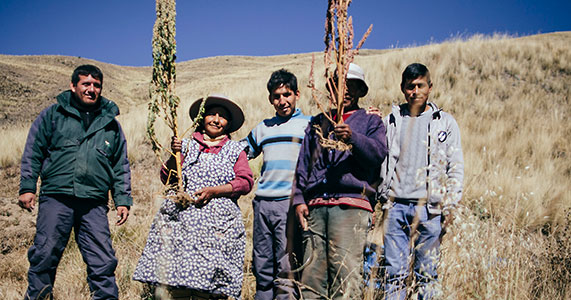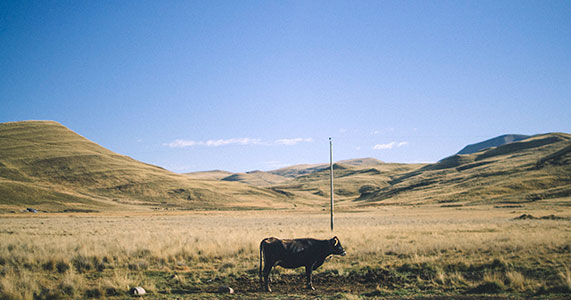Our Challenges
Prisma has taken on challenges against hunger and climate change, so our actions are framed in cross-cutting approaches and proposals that benefit families, communities and the environment.

Prisma, a commitment assumed against anemia
Let’s finish with anemia NOW!
Prisma assumes an institutional commitment in the fight against anemia in children, a disease that limits their development and affects their future forever. We thus join the national strategy of the Peruvian Government to work together in the battle against this disease.

The fight against hunger:
We promote food security as a cross-cutting development model to improve the health and nutrition of families, especially of children under the age of 3, through projects that guarantee the availability and use of food and the improvement of income, through successful strategies on the coast, in the mountains, and in the forests, including native communities.
According to the Food and Agriculture Organization of the United Nations (FAO), at the 1996 World Food Summit (WFS) it organized, a consensus was established that said “Food security exists when all people, at all times, have physical and economic access to sufficient, safe and nutritious food that meets their dietary needs and food preferences for an active and healthy life.”
At this same Summit, dignitaries from the 185 signatory countries to the Rome Declaration on World Food Security reaffirmed “the right of everyone to have access to safe and nutritious food, consistent with the right to adequate food and the fundamental right of everyone to be free from hunger.”
By 1994, Prisma had already implemented important projects geared towards the health and nutrition of children under the age of three, PANFAR (a health and nutrition project for high-risk families) and KUSIAYLLU (a project with a community approach) and furthermore, other projects aimed at increasing income and productivity, such as PASA (Food Security Support Program), a microcredit program and CEAT (Collection Points and Transformation Centers) aimed at agricultural development.
Each project on its own did not cover all required aspects of food security, but together, they did. Thus PROFASA, funded by USAID PL 480, was established in the continuation and expansion of the projects that Prisma had been developing since 1989.
The objective of PROFASA was to improve food security for the neediest families in Peru. More specifically, the purpose of the program was to address the causes of food insecurity, improving the health and nutrition statuses of children under the age of three in families living in extreme poverty and increasing the income-generating opportunities for these families.
Since then, Prisma has been a reference point for food security projects and the fight against poverty at the national and international levels.

The fight against climate change:
At Prisma, we promote sustainability, conservation and the protection of natural resources, land, air, water and biodiversity in a way that guarantees social, economic and environmental benefits for present and future generations.
All our actions are framed with respect for the environment and we promote responsible adaptation to climate change forour collaborators, clients, suppliers and the participating population of our projects.
Prisma decided that as part of its institutional culture, it should deploy an Ecoefficiency program conducting a diagnostic test that would serve as a baseline and on which could be established measures for the efficient use of energy and water, as well as for the recycling of solid wastes, especially in the use of paper. The Institutional Ecoefficiency Program at Prisma started in 2008 with the aim of increasing economic efficiency and the formation of an environmental culture as a responsible institutional policy.
This program also educates the Prisma family about good practices in saving water and energy, and recycling. In addition, we strengthen our Environmental Management initiative, from which we design actions that contribute to the preservation of the environment.
